While interning with BKM Marketing during my winter break, I attended the New England Direct Marketing Association's (NEDMA) 9th marketing technology summit at Bentley University. The summit featured several influential speakers who shared their perspectives on the current and future state of marketing technology and how to adapt to it. Out of all of the summit's informative speakers and panelists (including BKM CEO Bruce McMeekin), here are six key concepts that I took away from the conference.
Use Automation, But Don't Let it De-Humanize Your Consumer Interactions
Scott Brinker, HubSpot’s VP Platform Ecosystem and Editor of the chiefmartec.com blog, kicked off the MTech Summit with an enlightening presentation on the new rules of marketing technology. One rule in his "New Rules of Marketing" list was "Automate everything you can." He explained that automation provides efficiency and positions you one step ahead of ahead of your competition. However, Brinker emphasized that automation strategy must positively impact the human component of consumer interactions. Avoid making the common mistake of implementing automation that creates savings for the seller at the expense of greater inconvenience for the user. Brinker also advised the audience to ensure automation is personalized, not generalized. Users are more likely to respond to messaging and processes containing the consumer's name and specific needs and preferences.
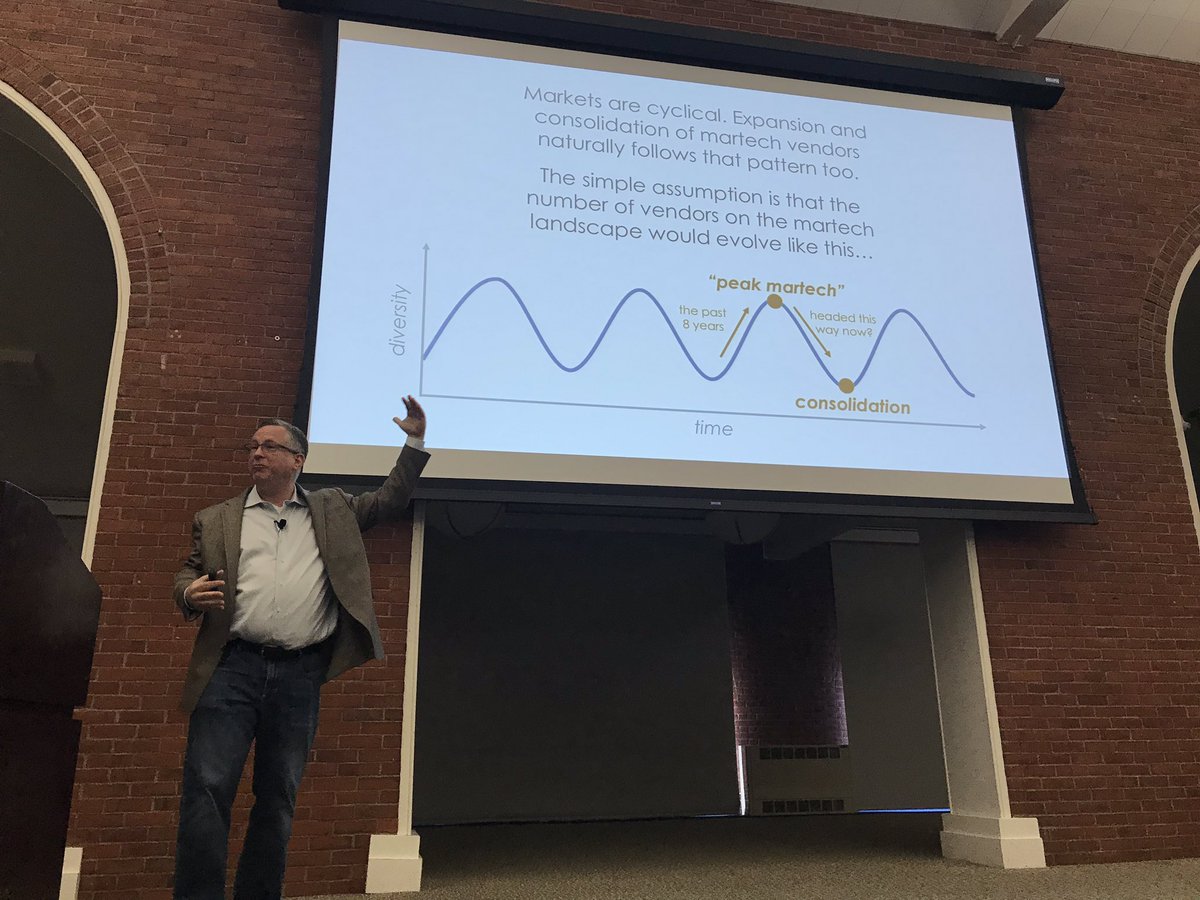 Scott Brinker delivers the opening keynote at NEDMA’s MTech Conference.
Scott Brinker delivers the opening keynote at NEDMA’s MTech Conference.
Optimize the Full Customer Journey
Overdrive Interactive CEO Harry J. Gold emphasized the importance of optimizing the full customer journey on three layers: media, technical, and persuasion. As marketers, we can improve the customer journey by continually checking in on spending, tracking efficiency, keyword efficiency, brand enhancement, and prospect communication efficiency. Gold advised us to repeatedly ask ourselves one simple question to properly map each layer of customer journeys: "And then what?" This ensures each step follows a chronological process, addresses every possible outcome, and persuades the audience to become even more engaged in your brand.
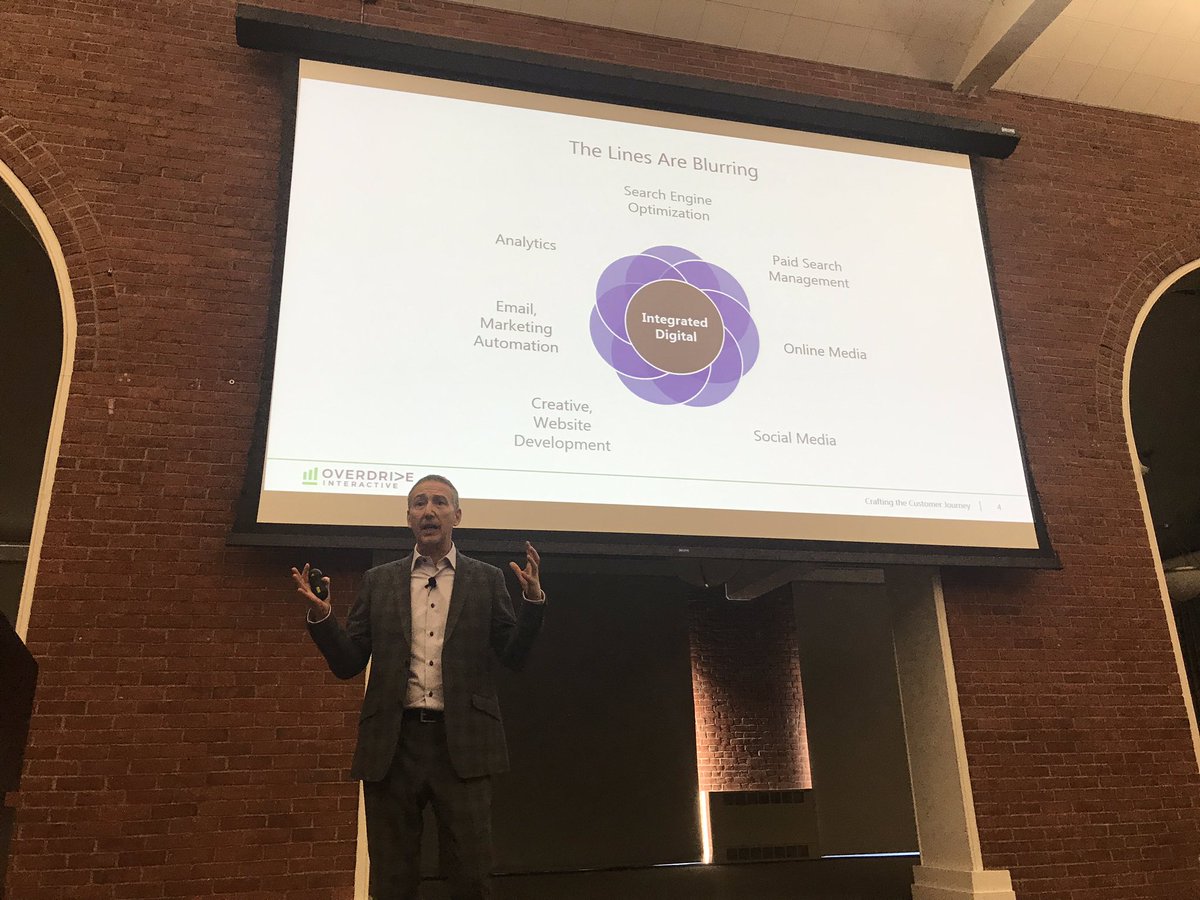 MTech Founder and Overdrive Interactive CEO Harry Gold presents Crafting the Customer Journey.
MTech Founder and Overdrive Interactive CEO Harry Gold presents Crafting the Customer Journey.
Align Sales and Marketing
Ziff Davis B2B’s VP Global Marketing Amanda Joyner compared the relationship between sales and marketing to a romantic relationship. Why? To emphasize that one cannot be successful without the other. Joyner recommends identifying the most impactful marketing KPI's that drive key sales success ratios to help shape marketing strategy and build the critical conversation bridge between marketing and sales. Communication is paramount. At a minimum, schedule monthly, quarterly and annual check-ins with the sales team to determine which marketing tactics created the strongest sales leads. Better yet, check-in casually with sales partners on an ad hoc basis and to build a fluid, real-time communication flow. From there, the marketing team can identify and enhance the best messaging, channels, offers, and calls-to-action to optimize alignment of sales and marketing.
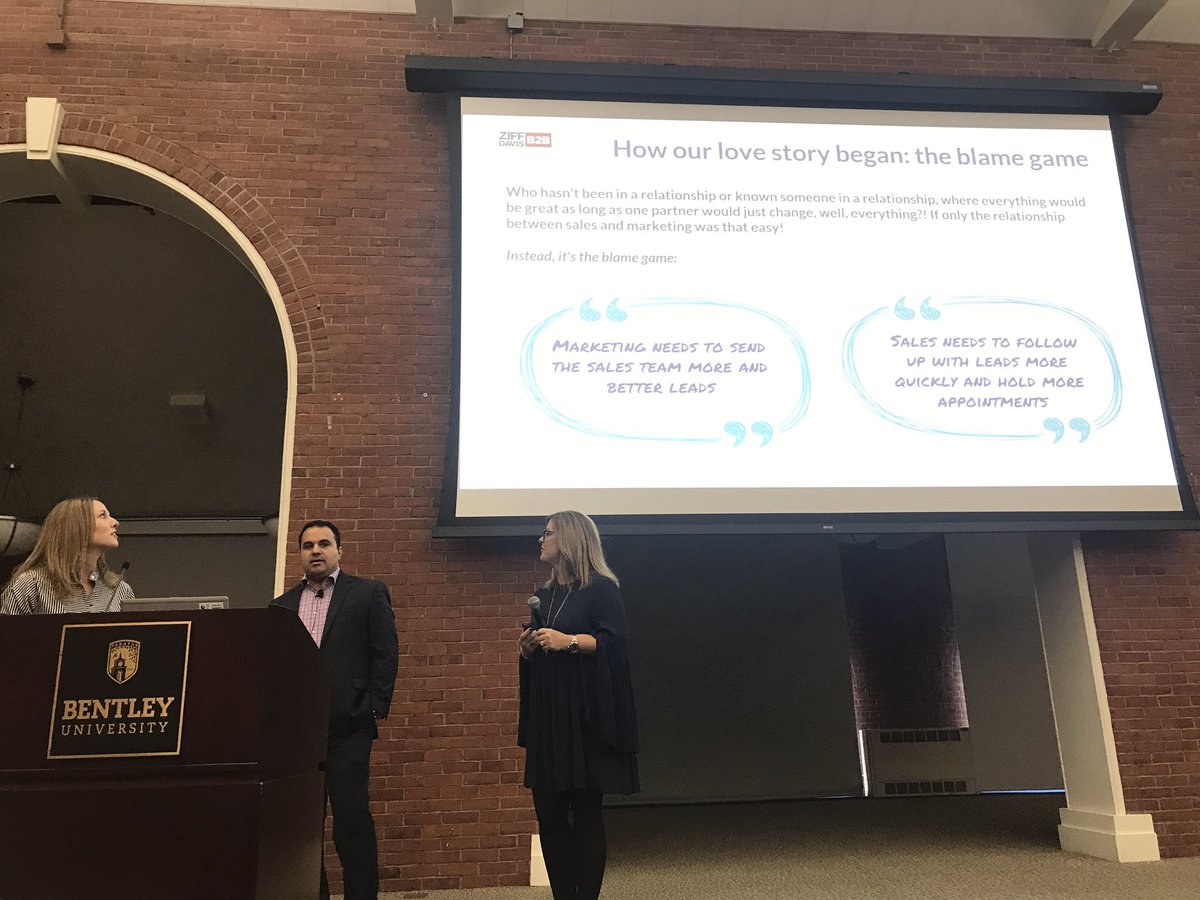 Ziff Davis B2B executives present “I love you, you’re perfect, now change!”
Ziff Davis B2B executives present “I love you, you’re perfect, now change!”
Technology is an Effective Way to Reduce Consumer "Friction"
Google's Director of Agencies Tim Reis offered his insights on the future of marketing and the increased use of machine learning and AI in marketing automation. In the constantly changing martech landscape, at least one aspect of marketing remains an effective baseline for developing strategy: reducing consumer "friction." Reis described "friction" as anything that causes a delay, difficulty, or problem for the consumer. Do whatever you can to reduce consumer "friction," whether it be through creating technology or providing a product or service that facilitates a task.
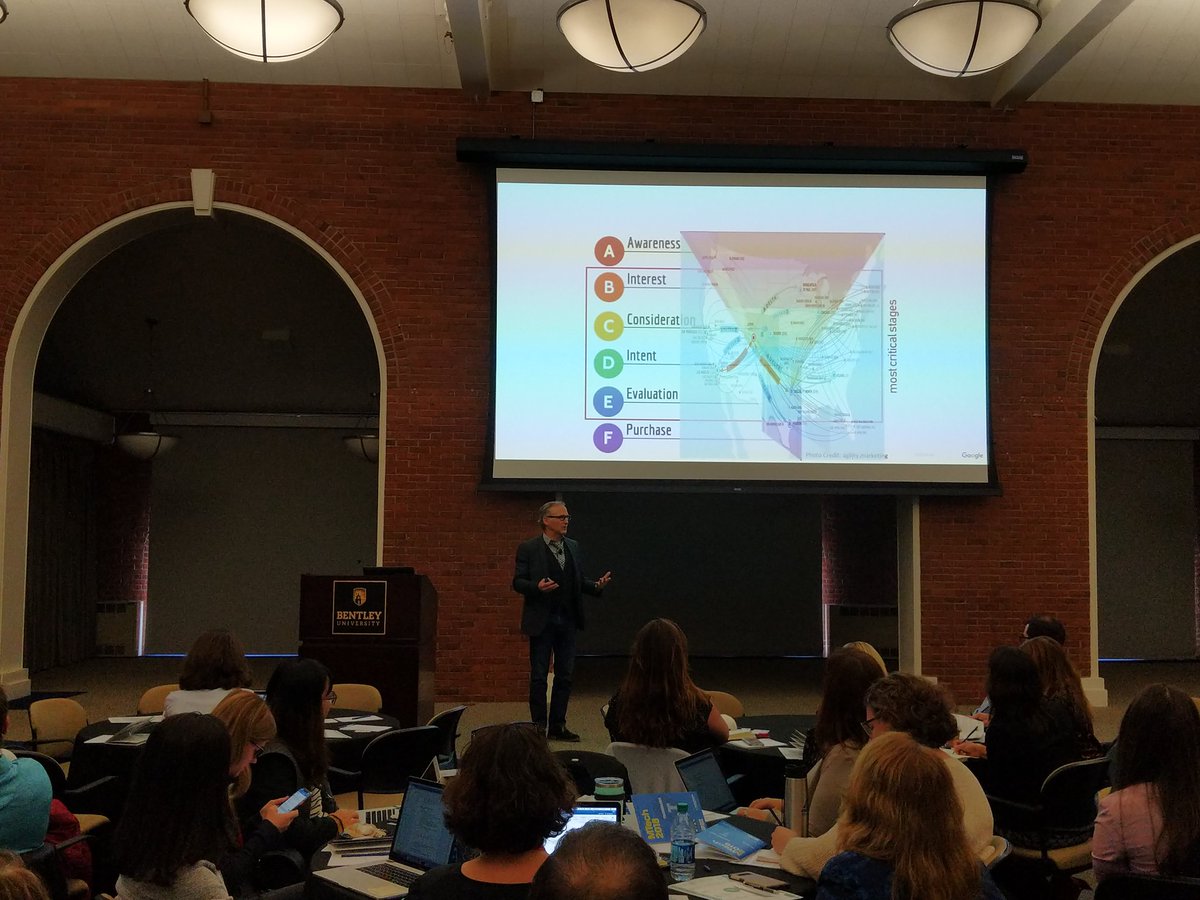 Google’s Tim Reis discusses machine learning and AI’s impact on marketing’s future.
Google’s Tim Reis discusses machine learning and AI’s impact on marketing’s future.Implementing Simple Neuromarketing Tactics Yields Tangible Results
"95% of purchase decision-making is subconscious," said Nancy Harhut, HBT Marketing Chief Creative Officer. Harhut explained how certain keywords and visuals can influence email opening percentages, click through rates, and purchase decisions. She introduced the neuropsychological concepts of the Availability Bias and the Scarcity Principle, both of which subconsciously evoke a sense of urgency and inspire action. The words "free," "new," "now," "soon," "finally," and "introducing" are all "eye magnetic words" according to Harhut. These words subliminally stand out to readers, evoke an emotional charge and lift product sales. Using the word, "secret," in email subject lines yielded an 11% increase in opening rate. Adding the word, "alert," can yield a 33% increase in email opening rates. Additionally, Harhut says that companies who offer multiple buying options (such as weekly, monthly, or annually) can trigger four times more sales than companies offering only one buying option.
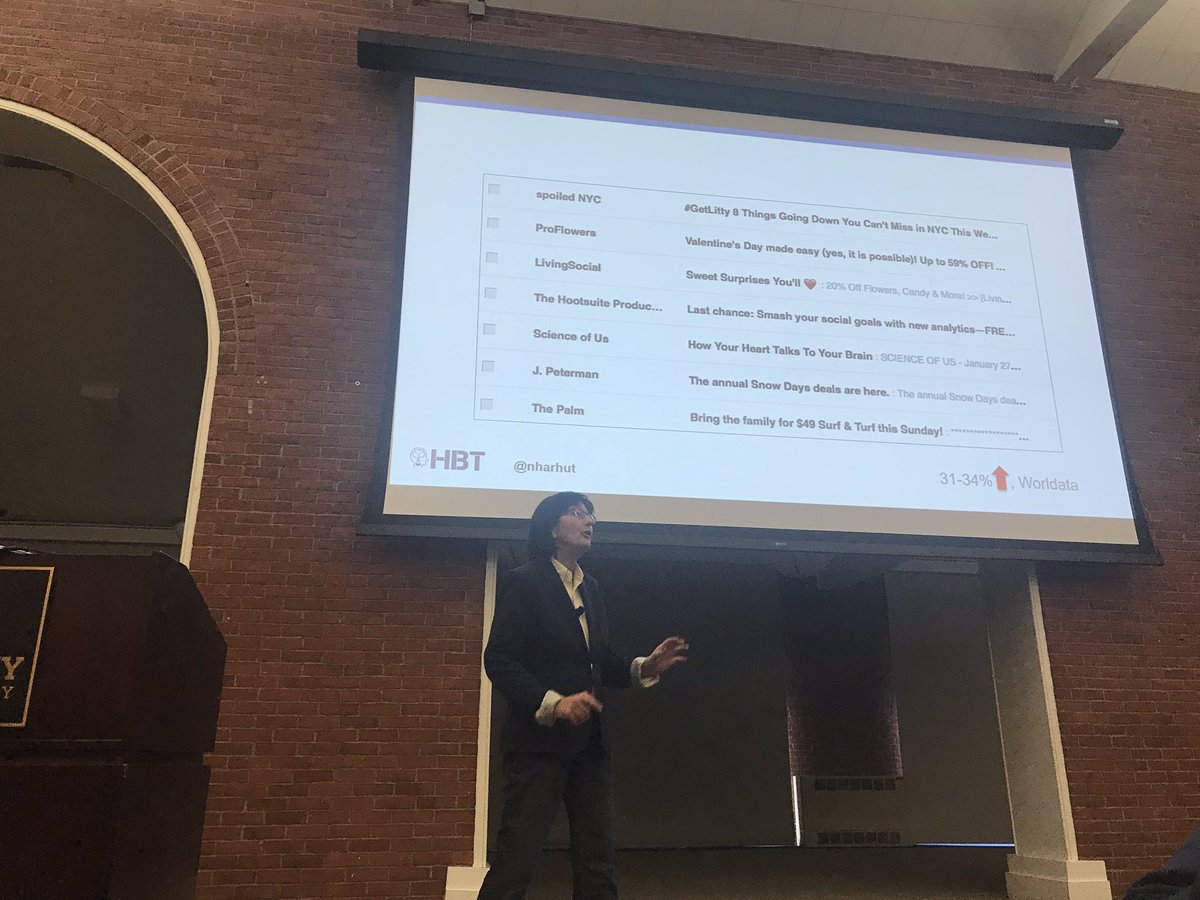 Nancy Harhut shares nine neuroscience tips to improve marketing result.
Nancy Harhut shares nine neuroscience tips to improve marketing result.
70% of Youtube Campaigns Generate Significant Results
Google's Agency Development Manager Laura O'Connell and New Business Manager Fizz Ahmed provided MTech '18 attendees with up-to-date information about the power and influence of video when it comes to generating sales. Companies increasing use YouTube to attract prospects, capture and convert consumer attention, and measure the messaging and offer impact. 86% of people turn to Google search for ideas about purchasing and using products, and YouTube videos often rank among the first search results. Consumers find it easier to digest marketing and service messages when they can experience sight, sound, and motion. Video content that informs generates not only views, but tangible sales growth as well. YouTube now offers several ways to capture and measure search intent beyond the scope of Google web analytics.
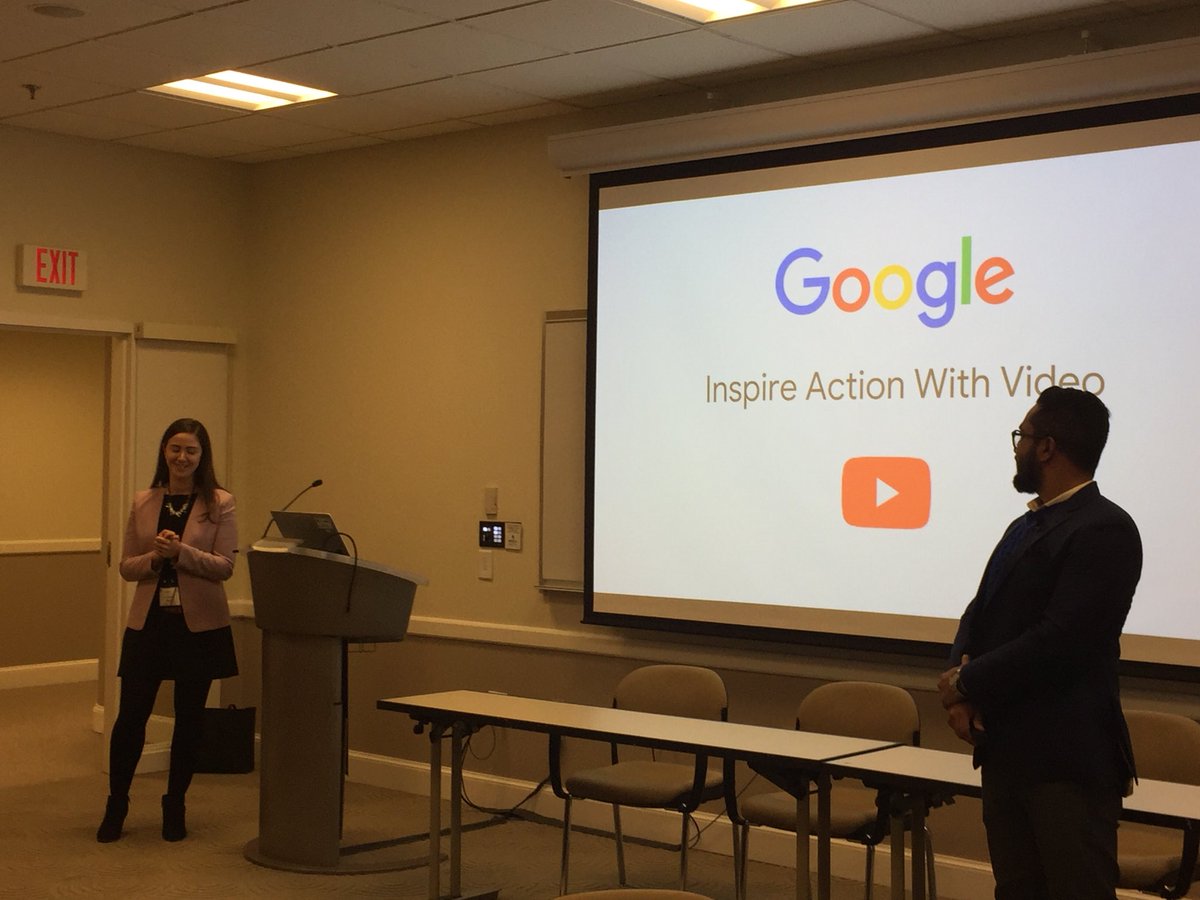 Google presenters describe how to use video to drive sales engagement.
Google presenters describe how to use video to drive sales engagement.
Digital Marketing Heaven or Hell? How to sort through the clutter.
Ian Cross, Professor; Director of Center for Marketing Technology, Bentley University moderated a digital marketing panel at MTech '18. The panelists included Bruce McMeekin, Founder & CEO at BKM Marketing, Christopher Bryant, Product Marketing Manager at Endurance International Group, and Dennis Kelly, Founder & CEO at Postalytics. Cross led a lively discussion that challenged panelists and attendees to assess how well digital marketing impacts a company’s ability to grow sales. The conversation quickly turned to challenges with data quality, which McMeekin described as "a massive mess" in most industries, especially those with B2B customers. Bryant, who focuses on helping small businesses fuel their online presence, agreed and added that SaaS software developers often start with simple-to-use concepts that quickly become cumbersome with new features. Kelly, founder of multiple businesses that simplify technology for end users, added that consumers and businesses no longer have patience for complicated experiences.
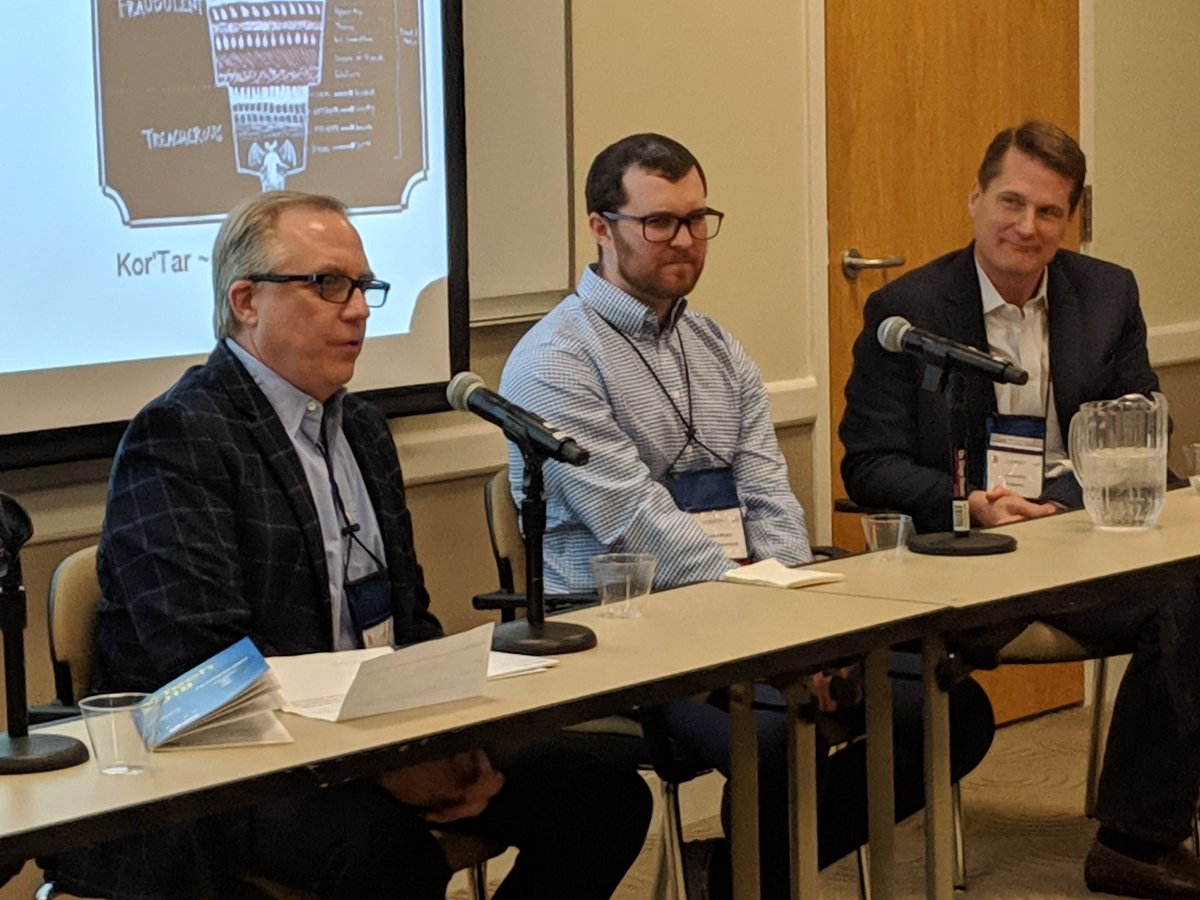 Bruce McMeekin, Christopher Bryant, and Dennis Kelly discuss what’s working (and not working) for digital marketers.
Bruce McMeekin, Christopher Bryant, and Dennis Kelly discuss what’s working (and not working) for digital marketers.
The MTech '18 Conference gave attendees up-to-date insight into the current and future state of digital marketing technology. Several themes emerged:
- Marketing automation needs to become more humanized.
- Neuromarketing provides scientifically-driven tactics to motivate human action.
- Consumers expect marketers to personalize messaging to addresses their specific needs.
- Marketers must constantly ask “and then what?” to guide customers through the buying journey.
- Video marketing is changing search behavior and dominating how people digest information.
- Lastly, data still drives everything.



SUBMIT YOUR COMMENT